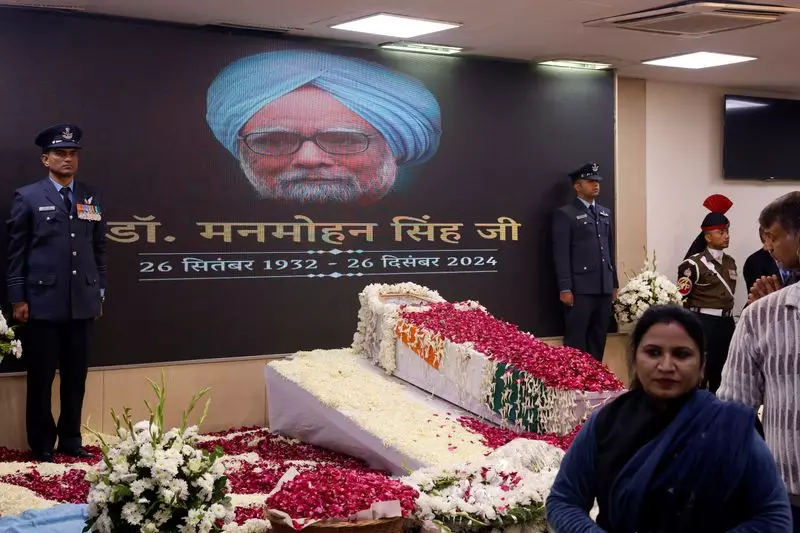The recent passing of Manmohan Singh, the former Prime Minister of India, marks a poignant moment in Indian politics and society. At the age of 92, Singh’s death has evoked widespread grief across the nation, while also garnering commendations from global leaders reflecting on his significant contributions. His cremation, which took place along the picturesque banks of the Yamuna River in New Delhi, was not just an occasion of mourning but also a ceremonial farewell to a figure who profoundly influenced India’s trajectory. Conducted in accordance with Sikh traditions, his last rites were adorned with the Indian flag, symbolizing his unwavering commitment to the nation he served.
Throughout Singh’s decade-long tenure as Prime Minister, he faced considerable criticism and challenges, particularly regarding allegations of weak leadership amid scandals and corruption that were rampant within the coalition government he headed. Singh’s statement, “history will be kinder to me than the contemporary media,” encapsulates his awareness of how leadership is often evaluated through the lens of prevailing public sentiment. His administration, despite its economic achievements, was plagued by perceptions of inefficiency, which culminated in the 2014 elections that ushered in Prime Minister Narendra Modi’s government.
A Cohesive Funeral Ceremony
Singh’s funeral was a gathering of dignitaries and fellow politicians, highlighting the reverence with which he was held, even by those who opposed him politically. Prime Minister Modi described him as one of the country’s “most distinguished leaders,” underscoring the profound respect that transcended political boundaries. The presence of prominent figures, including President Droupadi Murmu and diplomatic representatives from nations such as the U.S., Canada, and China, further emphasized Singh’s international stature and the impact he had during his terms in office. The government’s decision to allocate land for a memorial is a testament to his lasting legacy.
Often revered as the architect of India’s economic liberalization, Singh’s policies helped propel the nation onto the global stage. Nevertheless, his later criticisms of Modi’s administration—specifically regarding policies like demonetization and the introduction of the Goods and Services Tax—illustrate the complexities and disagreements that persist within economic philosophy in India. These contrasting ideologies raise important questions about governance and accountability, demonstrating the ongoing dialogue about the best approaches for economic growth and social welfare.
Beyond his political figurehead, Singh leaves behind a family that includes his wife and three daughters, who were joined by Congress Leader Rahul Gandhi during the procession to the Nigambodh Ghat cremation site. The public mourning alongside private grief humanizes Singh, reminding us that leaders are not only defined by their political decisions but also by their personal stories and connections. The reactions to his death reflect a nation very much aware of the profound impact one individual can have on its history.
As the nation processes the loss of Manmohan Singh, it is essential to reflect not just on his political choices, but on the multifaceted legacy he has left behind—a legacy that invites ongoing discussion about leadership, accountability, and the future path for India.

